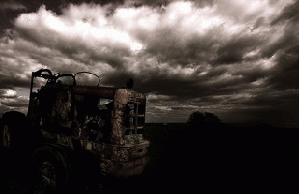Reprinted from medium.com
New scientific models supported by the British government's Foreign Office show that if we don't change course, in less than three decades industrial civilisation will essentially collapse due to catastrophic food shortages, triggered by a combination of climate change, water scarcity, energy crisis, and political instability.
Before you panic, the good news is that the scientists behind the model don't believe it's predictive. The model does not account for the reality that people will react to escalating crises by changing behavior and policies.
But even so, it's a sobering wake-up call, which shows that business-as-usual guarantees the end-of-the-world-as-we-know-it: our current way of life is not sustainable.
The new models are being developed at Anglia Ruskin University's Global Sustainability Institute (GSI), through a project called the 'Global Resource Observatory' (GRO).
The GRO is chiefly funded by the Dawe Charitable Trust, but its partners include the British government's Foreign & Commonwealth Office (FCO); British bank, Lloyds of London; the Aldersgate Group, the environment coalition of leaders from business, politics and civil society; the Institute and Faculty of Actuaries; Africa Development Bank, Asian Development Bank, and the University of Wisconsin.
This week, Lloyds released a report for the insurance industry assessing the risk of a near-term "acute disruption to the global food supply." Research for the project was led by Anglia Ruskin University's GSI, and based on its GRO modelling initiative.
The report explores the scenario of a near-term global food supply disruption, considered plausible on the basis of past events, especially in relation to future climate trends. The global food system, the authors find, is "under chronic pressure to meet an ever-rising demand, and its vulnerability to acute disruptions is compounded by factors such as climate change, water stress, ongoing globalisation and heightening political instability."
Lloyd's scenario analysis shows that food production across the planet could be significantly undermined due to a combination of just three catastrophic weather events, leading to shortfalls in the production of staple crops, and ensuing price spikes.
In the scenario, which is "set in the near future," wheat, maize and soybean prices "increase to quadruple the levels seen around 2000," while rice prices increase by 500%. This leads to rocketing stock prices for agricultural commodities, agricultural chemicals and agriculture engineering supply chains:
"Food riots break out in urban areas across the Middle East, North Africa and Latin America. The euro weakens and the main European stock markets lose 10% of their value; US stock markets follow and lose 5% of their value."
The scenario analysis demonstrates that a key outcome of any such systemic shock to the global food supply"--"apart from "negative humanitarian consequences and major financial losses worldwide""--"would be geopolitical mayhem as well as escalating terrorism and civil unrest.
(Note: You can view every article as one long page if you sign up as an Advocate Member, or higher).






